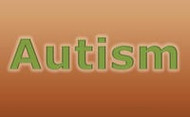Autism and Essential Oils
Apr 21st 2021
Posted by Stephanie Chambers
by Stephanie Chambers and Dr. Christoph Streicher
Autism spectrum disorder (ASD) is a brain developmental disorder that is becoming increasingly common in the US and the world as a whole. It makes it hard for someone suffering from it to communicate and to interact. Some also have restrictive and/or repetitive behaviors. In the past this disorder was broken into different types such as autistic disorders and Asperger’s Syndrome. Since 2013, they have been brought under the umbrella of ASD but the degree to which these symptoms are experienced vary greatly. Sometimes certain abilities are normal, or even superior, whereas other abilities are impaired. Many people with ASD don't feel that they suffer from it. In fact, they believe it is a plus and that those of us who are "neurotypical" are the ones who are disabled.
The US Center for Disease Control and Prevention (CDC) says that 1 in 68 children (1.5%) in the US have some degree of autism. It is ten times more common than it was 40 years ago and its prevalence appears to be sharply increasing in recent years, although some of that could be due to increased awareness and diagnosis. It is 4 to 5 times more common amongst boys than girls. Over 3 million suffer from it in the US and according to 2013 estimates there are over 21 million sufferers globally.
There appear to be many factors causing autism. Researchers have found that genes have mutated and these mutated genes increase the risk of autism. Environmental factors influencing early brain development also seem to be playing a part, but it is controversial as to which ones are responsible. For example, some think it could be exposure to toxic chemicals. In some cases it occurs as a result of infections that affect the brain (meningitis, celiac disease, encephalitis, etc). Others think vaccinations can cause it, but generally this is thought to have been disproven. Typically, parents notice increasing signs of autism in the first two years of their child’s life. In some cases, a child will develop normally but then have their development regress. Although there is no known cure, there have been children that have recovered from it.
All autism sufferers don't have the exact same problems. But some commonly experienced difficulties are in:
ESSENTIAL OILS HELP PROVIDE SENSORY STIMULATION
A study 1 on 28 autistic boys, aged 3 to 12, showed that those that were given daily olfactory / tactile stimulation along with exercises that stimulated other paired sensory modalities, significantly improved their Childhood Autism Rating Scale indicating better behavior and overall cognition when compared to a control group. Their parents also noticed the improvements.
The parents of children conducted two sessions a day (15-30 minutes) of four to seven exercises involving different combinations of sensory stimuli for touch, temperature, sight and movement. The olfactory stimulation was provided by exposure to scents such as Apple, Lavender, Lemon and Vanilla.
OTHER USES FOR ESSENTIAL OILS
Some parents of autistic children have also found that essential oils have helped their child as follows:
• To improve the ability to focus: Peppermint, Basil, Rosemary, Lime and Lemon.
• To improve sleep length and quality: Lavender.
• To promote relaxation: Orange and Mandarine.
• To reduce anger and tantrums: Cedar Atlas, Roman Chamomile, Cypress, Rose and Orange. Some have also found Vetiver useful, but we generally wouldn’t recommend it for children (or anyone who isn’t emotionally mature) because it is an advanced oil and children often don’t relate well to it.
• Grounding: Most of the anger oils like Rose are also grounding, but some additional ones are Clary Sage and Myrrh.
For the above oils, diffusing them is generally the best method for children especially for the oils for focusing. You can also make a mist spray with Lavender and spray it on the pillows or use it in a bath. You can also dilute the anger and grounding oils and massage them in. The anger oils can also be diluted and used in a bath.
Clearly suffering from autism can be very stressful as communication is so difficult. You may find Amrita’s page about stress management useful. Some people have found that stress-reducing techniques can also help. For example, Yvonne Kurtz2 has a son suffering from what used to be called Asperger’s Syndrome and she found that when her son started practicing Transcendental Meditation, that his temper tantrums stopped and his life as a whole started to improve.
Autism is a terrible brain disorder and many are suffering from its impact on their lives. We can only hope that researchers will find a way to prevent it occurring and to cure it. In the meantime, you may find that essential oils, when used along with other tactile stimulation exercises, and early speech and/or behavioral interventions and stress reducing techniques may help to reduce the symptoms experienced by it. And if you are one of the lucky ones, maybe your child may even recover from it.
We would appreciate it if you could share any experiences you have had in using essential oils for autism using the comments section below, so that we can all benefit.
Sources:
2 http://www.tm.org/blog/video/autism/
Disclaimer: The statements made in this blog have not been evaluated by the U.S. Food and Drug Administration (FDA). They are not intended to diagnose, cure or prevent any disease. If a condition persists, please contact your physician or healthcare provider. The information provided is not a substitute for a face-to-face consultation with a healthcare provider, and should not be construed as medical advice.
Original Published: 2015-07-29 / Last Modified: 2021-09-17

